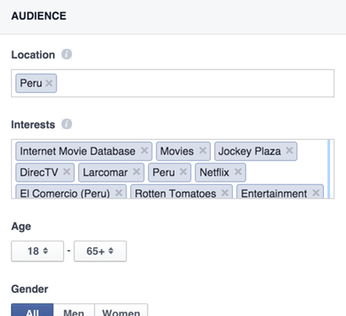The Rise of the Ad Blocker

Are you interested in improving the loading speed of webpages on your mobile device by 4x, and generating savings of 50% on your data plan, on average? Get an ad blocker.
Crystal, Purify, Adblock Plus, and other ad blocking apps are offering these or similar improvements for users of mobile devices1.
Ad blockers have been available for Android and desktop users for a while now, but until recently their adoption had never been huge. With the introduction of iOS 9, the latest version of its mobile operating system, Apple has opened the possibility for third-party developers to write ad blockers. Installing an ad blocker on an iPhone is now as easy as buying and installing any app on the App Store.
The mobile advertising industry
As Ben Thompson writes, mobile is the greatest market any industry has ever seen:
Mobile is a great market. It is the greatest market the tech industry, or any industry for that matter, has ever seen, and the reason why is best seen by contrasting mobile with the PC: first, while PCs were on every desk and in every home, mobile is in every pocket of a huge percentage of the world’s population. The sheer numbers triple or quadruple the size, and the separation is increasing. Secondly, though, while using a PC required intent, the use of mobile devices occupies all of the available time around intent. It is only when we’re doing something specific that we aren’t using our phones, and the empty spaces of our lives are far greater than anyone imagined.
Mobile browsing represents 14% of total web browsing, and 52% of it is done on an Apple device2. Global mobile advertising spending is predicted to hit $100 Billion in 20163. This means around $50 Billion of mobile advertising spending targets iPhone and iPads.
While it’s too early to know how many iPhone users will install ad blockers on their devices, a scenario of a 10% blocker adoption rate would translate in a revenue loss for advertising companies of around $5 Billion in 2016. No wonder advertisers are worried.
Browsing the web while being observed by a team of marketing specialists
Most advertisers narrowly track your web usage when you visit a page that displays an ad or has a tracker installed. What is less known is that they can also track how you use that page: the links you click on, the movements of your mouse, page scrolling, average time spent on the page… Everything can be tracked and sent to the advertisers’ server to be automatically analyzed.

A screenshot of a portion of Facebook’s ad configuration page.
This information is used for marketing intelligence, to measure the advertiser’s campaigns’ effectiveness, conversion rates, showing more focused ads to a more precisely defined audience. If you want to see how far the rabbit hole goes, try placing an add in Facebook. If you are new to online advertising, you will be surprised by the fine level of segmentation Facebook offers so that your ad is displayed only to the relevant audience.
To make this detailed tracking possible, advertisers need not only to show ads but also to load and run programs in the user’s browser. Sometimes, lots of programs. From the user’s point of view, the side effects are longer loading times (i.e., slower browsing) because of this extra code needed to display the page, more data consumption and therefore decreased battery life.
[
This screenshot of the webpage of El Comercio, a leading peruvian newspaper shows on the upper right corner the various advertisement and tracking codes embedded on the page as detected and blocked by Ghostery, a free ad blocker available for most platforms.
People have been blocking ads forever, by ignoring them, writes Seth Godin writes. Click Through Rates —the clicks to an external link to the number of impression of the Ad— of 0.15% worldwide across all verticals, and as low as 0.08% in the US confirm this. But Advertisers still need to meet their goals. In order to attract our attention, some of them resort to more obtrusive ads and flashier formats4. Also, the density of ads per page has increased, further annoying the visitors of those websites.
Privacy concerns because of detailed tracking of user behavior, longer load times, obtrusive ads, and higher number of ads per page… Is anyone surprised that the most frequent reasons cited by users for using ad blockers are Misuse of personal information (“I feel my personal data is being misused to personalize the ads”, 50% of respondents), and the _increase in the number of ads per page_5?
How is Facebook affected?
Facebook can benefit greatly from this war. Facebook’s app is unaffected by most ad blockers6, and the vast majority of Facebook users use the Facebook app when mobile. Facebook is positioned to attract a big portion of advertisers’ dollars. And as Ben Thompson writes in The Facebook Epoch, Facebook’s potential market is the biggest ever.
A company’s potential is first and foremost measured by its market, and Facebook’s potential market is, when you consider both sheer numbers and time spent, an order of magnitude greater than the PC-based Internet market ever was. Then, on top of that, you increasingly have brand advertising dollars —also an order of magnitud more than direct response dollars— looking for somewhere to go other than TV, and it just so happens that Facebook is the perfect brand advertising platform. The company has the right set of products in the right market at the right time.
Don’t forget Facebook’s internet.org initiative to bring the Internet to the two thirds of the world’s population that doesn’t have it. A great initiative, but somewhat controversial considering that internet.org’s offering consists of access not to the whole Internet but only to Facebook and a list of selected apps. According to Quartz, millions of Facebook users have no idea they’re using the internet. “Indonesians surveyed by [Helani] Galpaya told her that they didn’t use the internet. But in focus groups, they would talk enthusiastically about how much time they spent on Facebook. Galpaya, a researcher (and now CEO) with LIRNEasia, a think tank, called Rohan Samarajiva, her boss at the time, to tell him what she had discovered. “It seemed that in their minds, the Internet did not exist; only Facebook,” he concluded.
The article continues:
The expectations and behaviors of the next billion people to come online will have profound effects on how the internet evolves. If the majority of the world’s online population spends time on Facebook, then policymakers, businesses, startups, developers, nonprofits, publishers, and anyone else interested in communicating with them will also, if they are to be effective, go to Facebook. That means they, too, must then play by the rules of one company. And that has implications for us all.
Free content in exchange for attention
Advertising has always worked based on the “implied contract” theory: users view ads in exchange for free content, free content in exchange for attention. However, as Marco Arment and others point out, this no longer applies for the web:
The “implied contract” theory that we’ve agreed to view ads in exchange for free content is void because we can’t review the terms first — as soon as we follow a link, our browsers load, execute, transfer, and track everything embedded by the publisher. Our data, battery life, time, and privacy are taken by a blank check with no recourse. It’s like ordering from a restaurant menu with no prices, then being forced to pay whatever the restaurant demands at the end of the meal.
On the web, more and more people have come to believe that the deal [free content in exchange for attention] doesn’t work, and so they’re unilaterally abrogating it. They don’t miss the ads, and they don’t miss the snooping of their data.
And advertisers have had fifteen years to show self restraint. They’ve had the chance to not secretly track people, set cookies for their own benefit, insert popunders and popovers and poparounds, and mostly, deliver us ads we actually want to see.
Alas, it was probably too much to ask. In the face of a relentless race to the bottom, users are taking control, using a sledgehammer to block them all.
Advertisers, of course, aren’t happy. According to the Interactive Advertising Bureau, “advertising is the economic engine that drives the free internet”. Similar to the music industry when facing disruption by Napster, instead of recognizing a major and probably inevitable change in the industry, advertisers try to spread fear by claiming that if ad blocking becomes mainstream, access to information on the Internet will cease to be free.
This tweet reflects perfectly the mindset of some advertisers:
Blocking web ads is ‘as bad as Napster’, says data firm https://t.co/a6jwPsu73b
— Guardian Tech (@guardiantech) September 9, 2014Default: block everything
Not all advertisers are evil and neither is all tracking. Lots of websites (like this one) use Google Analytics to measure visitors and other relevant data like which articles receive more visitors, where do those visitors come from (for example, from searching on Google), etc.
Other advertisers, famously The Deck, are strongly committed to respect user’s privacy:
Short version. We don’t track our readers in any way or allow any other behind-the-scenes shenanigans. We just serve useful, relevant ads in a simple, unobtrusive way to support independent publishers. Please white-list The Deck when using ad blocking software. Thanks. We will never share your personal information obtained by tracking, either individually or in aggregate, with advertisers or any one else for one very good reason: we don’t have any.
However, configuring an ad blocker to make such distinctions requires some configuration. Most users will default to block everything, using a sledgehammer approach, just because it’s their ad blockers’ default setting.
The Acceptable Ads Initiative

The Acceptable Ads initiative is an effort by Eyeo GmbH, the company behind popular Adblock Plus, to establish strict criteria for identifying nonintrusive ads.
From the Acceptable Ads Manifesto:
To preface, we don’t philosophically dislike advertising – much of it is entertaining and even useful. And certainly a lot of the free stuff we enjoy on the Internet owes its existence to the advertisers who support those websites.
But we don’t want obtrusive pop-ups, or obnoxious blinking ads, or 30-second pre-roll video ads running amok on our computers and mobile phones. We wouldn’t tolerate that in the physical world; why should we accept them just because it’s digital? Imagine a billboard jumping in front of your car while on the freeway, or a newspaper ad suddenly opening up and covering all the words you are reading. Why should online ads get special treatment? Moreover, the noisier that online ads get, the more people install adblockers to stop them. It’s an unwinnable, downward spiral.
Just to be clear, the Acceptable Ads Initiative is not a list of acceptable advertisers, but a definition of what constitutes an acceptable ad, broadly defined. Eyeo GmbH, as a company, has translated this definition into a more detailed technical specification, and keeps a list of whitelisted advertisers.
There is a catch, however: if you are a big enough company, you have to pay Eyeo a fee in order to be whitelisted. According to Megan Geuss from Ars Technica, in addition to meeting the acceptable ads criteria, Google, Microsoft, Amazon and Taboola have paid deals with Eyeo.
This is a clear case of conflict of interest. Companies need to be profitable by definition. If you are charging companies to be whitelisted, then you’re selling them a service. Do you really expect your judging over what constitutes an “acceptable ad” to be always impartial when your company’s profitability depends on how strictly you apply the rules?
Resources
Ad blockers for your desktop/laptop
 |
Ghostery, a free ad blocker for your laptop available as an add-on for all major browsers. Recommended. |
 |
AdBlock Plus, a very popular alternative, also available for all major browsers. |
Ad blockers for iOS
You need to have iOS 9 in your device for these ad blockers to work.
 |
Crystal, one of the top-selling ad blockers for iOS. |
 |
Purify. This is the ad blocker I’m using with great results at the time of this writing. |
 |
Adblock Plus. The iOS version of the popular desktop ad blocker. Also available for Android. |
Resources about ad blocking
- PageFair’s 2015 Ad Blocking Report is a comprehensive resource with up to date information and numbers about ad blocking and its effects on the advertising industry. PageFair is a provider of counter ad block solutions to web publishers.
- PageFair’s 2014 Ad Blocking Report – Adblocking Goes Mainstream.
- PageFair’s 2013 Ad Blocking Report – The Rise of Adblocking.
-
Mobile browsing refers to browsing the web on your mobile device using an app like Mobile Safari or Chrome, and is affected by ad blockers. On the other hand, mobile apps like Facebook or Instagram are not affected by ad blockers. ↩
-
cfr Why Apple’s latest software update has advertisers worried. ↩
-
Which is effective from a revenue-only point of view. According to Google, CTR of Rich Media formats is 0.29%, vs 0.09% for Standard Media. ↩
-
Most ad blockers usually detect only third-party tracking. If you are logged into Facebook and on their site, that’s first party tracking, so they don’t get blocked. ↩